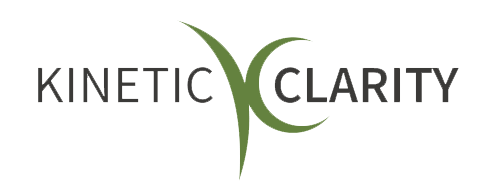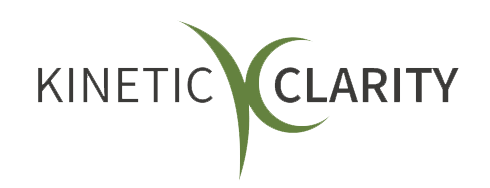3 Ways to Integrate Coaching into Talent Development Programs
The world of coaching offers a variety of approaches tailored to the unique needs of the individual or group being coached.

Leaders, teams, and individuals are always looking for ways to maximize their potential and navigate the complex landscape of their professional lives. Coaching has emerged as a transformative process, offering a powerful alliance that helps them uncover and harness their innate capabilities.
The world of coaching offers a variety of approaches tailored to the unique needs of the individual or group being coached. From one-to-one coaching engagements to team and group coaching, this multifaceted discipline adapts to the ever-changing dynamics of the modern workplace.
As coaching culture continues to gain traction, its positive impact has the power to increase market value for businesses willing to invest in a people-first strategy to win. Powered by a strong partnership with HR, coaching adds value across leadership development, performance management, and talent acquisition. Through coaching, individuals and teams can deepen their learning, expand their range of skills, and adapt more readily to new roles and environments. This blog post explores 3 ways in which coaching can be integrated into talent development programs.
Types of Coaching
The International Coach Federation (ICF) defines coaching as “partnering with clients in a thought-provoking and creative process that inspires them to maximize their personal and professional potential. This process often uncovers untapped sources of imagination, productivity, and leadership.”
Broadly, coaching can be categorized into 3 primary types: individual, team, and group. Each type of coaching is designed to address unique challenges, opportunities, and objectives, creating a tailored approach that best fits the needs of the specific client or organization.
INDIVIDUAL COACHING: Unleash Personal Potential
The most common type of coaching engagement is a one-to-one relationship between a client and a coach. Often, the clients who seek out these engagements are leaders or executives, yet organizations are increasingly recognizing the value of extending coaching opportunities to employees at all levels. This expansion in the availability of coaching serves to bolster engagement, performance, and overall wellbeing in the workforce.
Individual coaching creates unique, custom approaches for executives, leaders, managers, and individual contributors. Coaching helps individuals navigate their unique circumstances, relevant challenges, and growth opportunities. The impact of individual coaching engagements is multifaceted, dialing in self-awareness and enhancing various aspects of the person’s ability to perform and lead effectively.
By embracing individual coaching with a credentialed coach, individuals can unleash their personal potential, navigate their unique challenges, and lead with greater impact and effectiveness.
TEAM COACHING: Empower Teams to Excel
Team coaching is a powerful tool to enhance both individual skills and collective talent within a structured team with common goals. The ICF defines team coaching as “partnering in a co-creative and reflective process with a team on its dynamics and relationships in a way that inspires them to maximize their abilities and potential in order to reach their common purpose and shared goals.”
Team coaching involves an experienced external professional coach working with a group of people who share a common purpose or business objective. Team coaching allows members to explore their collective potential, find common purpose and alignment, and unlock high performance.
Organizations increasingly recognize the power of teams to innovate and drive the success of the business. Now more than ever, private companies, government agencies, and nonprofit organizations are turning to team coaches to harness a team’s collective expertise, energy, and wisdom to advance their efforts and achieve greater results.
By embracing team coaching, organizations can unlock the full potential of their teams, creating a collaborative, innovative, and high-performing work environment that drives business success.
GROUP COACHING: Elevate Engagement and Performance
While team coaching focuses on the art of collaboration, alignment, and cohesiveness for individuals who work together, group coaching emphasizes personal development within a broader organizational setting. Through peer interactions, collective exploration, and shared learning, individuals come together to foster deeper relationships and achieve actionable, lasting growth.
Group coaching is a development journey for individuals within a group setting led by a professional coach. The process harnesses the unique resources and knowledge of a group of individuals working towards a common development theme with unique individual goals. In group coaching, the individuals may not work together. They may have different goals, different roles, and different departments.
Group coaching leverages the power of peer learning, shared experiences, and collective discovery, facilitated by a skilled coach who guides the group toward actionable, long-term development.
How to Integrate Coaching Into Your Talent Development Programs
1. Leadership Development & Training: Coach to Deepen Learning
Strong leadership is a critical component of any winning organization. Investing in leadership development and training is essential to align the desired culture, develop the necessary skills and competencies, and drive the required outcomes for the business.
High-quality leadership development programs can provide valuable insights, but without continued support and reinforcement, even the best learning can dissipate over time. That’s where coaching comes in. By partnering with a skilled coach, individuals, teams, and groups can deepen their learning, translating insights from workshops into sustainable changes in behavior.
Coaching can help…
- Offer individuals the opportunity to practice new skills in real time, providing immediate feedback and guidance
- Provide a level of accountability that is often missing from standalone workshops
- Bridge the gap between learning and organizational culture
Coaches act as guides, helping individuals explore the nuances of what they’ve learned and how it applies to their specific contexts. This exploration goes beyond the surface level, diving deep into the core of an individual’s beliefs, assumptions, and habitual behaviors. Coaching deepens self-awareness of these foundational elements, fostering profound and lasting transformation.
2. Performance Management – Coach to Expand Range
The ultimate goal of coaching within a talent development program is to support business objectives and the performance of individuals and teams. Integrating coaching into performance management processes helps close gaps in performance and expand capabilities.
Ideally, all leaders, teams, and individuals are striving to meet and exceed performance expectations. In reality, the complex, ever-changing business environment drives the need to actively manage performance with timely feedback, opportunities to grow, and clear expectations.
Coaches bring a fresh perspective to performance management, offering insights and strategies that may not be readily apparent to those directly involved. In the performance management cycle, coaches can be assigned to:
- High-potential leaders and individuals to help them sustain and grow their strengths
- Leaders who need additional support to improve performance and lead in alignment with organizational culture
- Newly promoted leaders or leaders preparing for expanded responsibilities and opportunities to help them transition successfully
Coaches can help individuals, teams, and groups identify areas for improvement, develop action plans, and provide ongoing support as they work to implement changes. By doing so, coaches can help them expand their range of skills, build new competencies, and enhance their overall effectiveness.
3. Onboarding: Coach to Integrate New Hires
Coaching to support the investment in recruiting a new leader is essential. In fact, 50% to 70% of executives fail within 18 months of taking on a new role, according to a study by the Corporate Executive Board (now CEB, a part of Gartner). One of the main reasons cited is that they aren’t prepared to handle the new role.
Coaching new leaders through their onboarding process is a focused effort to provide a smooth transition for both the new leader and their team. The process helps build strong, positive working relationships quickly, by fostering two-way communication and a shared understanding between leader and staff.
Coaching can help…
- Reduce the amount of time for the leader and the team to “get up to speed”
- Reduce the level of apprehension that may exist on the part of either the leader or the team
- Bring the organization together with the new leader as a unit at an early point to maintain the momentum of the organization and solidify the “team spirit”
- Identify strategic team needs and create focus on the business rather than team issues
- Provide a climate for two-way flow of information on such vital points as style of operation, needs of the organization, and problem areas
- Create an environment where issues can be dealt with openly and efficiently
- Provide a forum for the new leader to sell their ideas and philosophies to the new team
With effective onboarding and new leader assimilation, teams can continue to function optimally, maintaining productivity and morale during the transition. The new leader can also gain insights into the team’s culture, dynamics, and expectations, allowing them to provide effective leadership tailored to the team’s needs. Ultimately, a successful integration process can enhance team cohesion, foster mutual respect, and set the stage for achieving organizational goals.
Wrapping It Up
Of course, there are more than 3 ways to integrate coaching into an organization, and more than a handful of reasons to do so. Among the overall organizational benefits of coaching are increased employee engagement, better talent recruiting and retention, improved agility, and higher productivity.
As we’ve seen, coaching is a valuable tool that can be integrated into various aspects of talent development programs. Ultimately, individual, team, and group coaching is a strategic investment in the future of the organization. It cultivates a culture of growth, development, and collaboration, positioning the organization for long-term success in a competitive and rapidly evolving business landscape.
The benefits of coaching extend beyond the immediate outcomes, creating a ripple effect that benefits the entire organization. By embracing coaching, organizations can unlock their full potential, drive innovation, and achieve their most ambitious goals.
Originally posted on Co-Active












